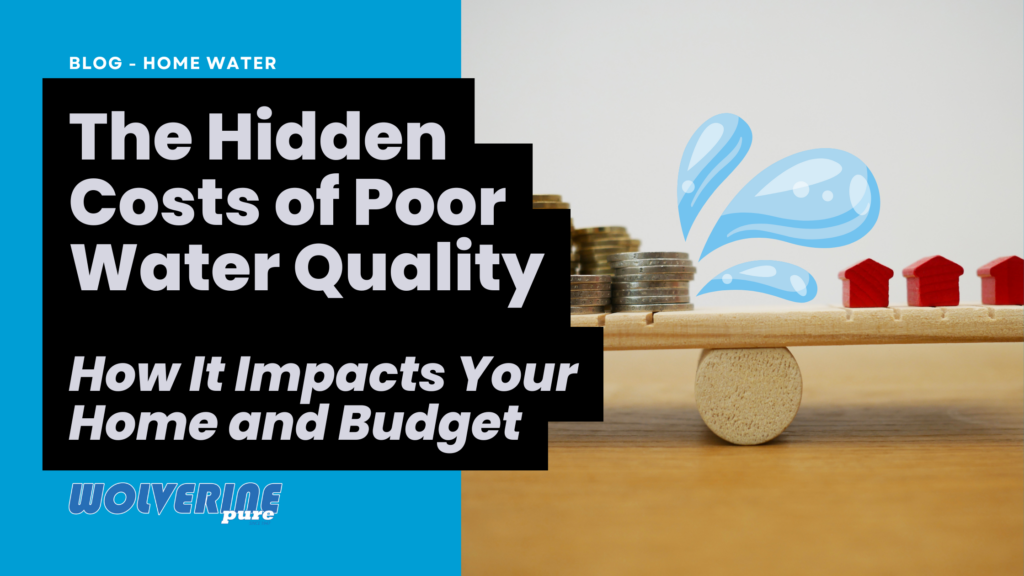When we think about water quality, we often immediately think about its impact on health. However, poor water quality can also harm your home and your budget. It can lead to hidden repair costs and higher energy bills. The effects of unfiltered or untreated water can add up quickly.
Here’s how water quality can affect your finances and what you can do to protect your home and wallet.
1. Shortened Appliance Lifespan
Hard water, filled with minerals like calcium and magnesium, can damage household appliances. Over time, these minerals build up inside your water heater, dishwasher, and washing machine, reducing efficiency and causing early wear and tear.
According to the Water Quality Research Foundation, homes with hard water experience:
- A 30% reduction in water heater lifespan.
- Increased maintenance costs for appliances.
Switching to treated water can save thousands of dollars in replacement and repair costs over the years.
2. Higher Energy Bills
Mineral buildup (or scale buildup) in appliances like water heaters and boilers forces them to work harder, leading to higher energy consumption. A study from the U.S. Department of Energy found that scale buildup in water heaters can reduce energy efficiency by up to 48%.
With cleaner, softer water, your appliances can operate at peak efficiency, lowering your energy bills significantly.
3. Plumbing Problems
Hard water harms appliances and your plumbing system. Mineral deposits can clog pipes, restrict water flow, and lead to costly repairs. The Environmental Protection Agency (EPA) notes that hard water issues are among the most common complaints from homeowners.
Replacing damaged pipes or dealing with blockages can cost homeowners thousands of dollars.
4. Extra Spending on Cleaning Products
If you’re using hard water, you might find yourself buying more soap, shampoo, and detergents. The minerals in hard water prevent these products from lathering effectively, so you need to use more to achieve the same results.
Additionally, hard water often leaves soap scum and water spots on dishes, glassware, and shower surfaces, meaning more time and money spent on cleaning supplies.
5. Damage to Fabrics and Laundry
Hard water can make your clothes feel stiff, fade faster, and wear out sooner. The minerals in untreated water weaken fabric fibers over time, meaning you’ll need to replace clothing and linens more often.
Softened water keeps your laundry looking fresh, soft, and long-lasting.





